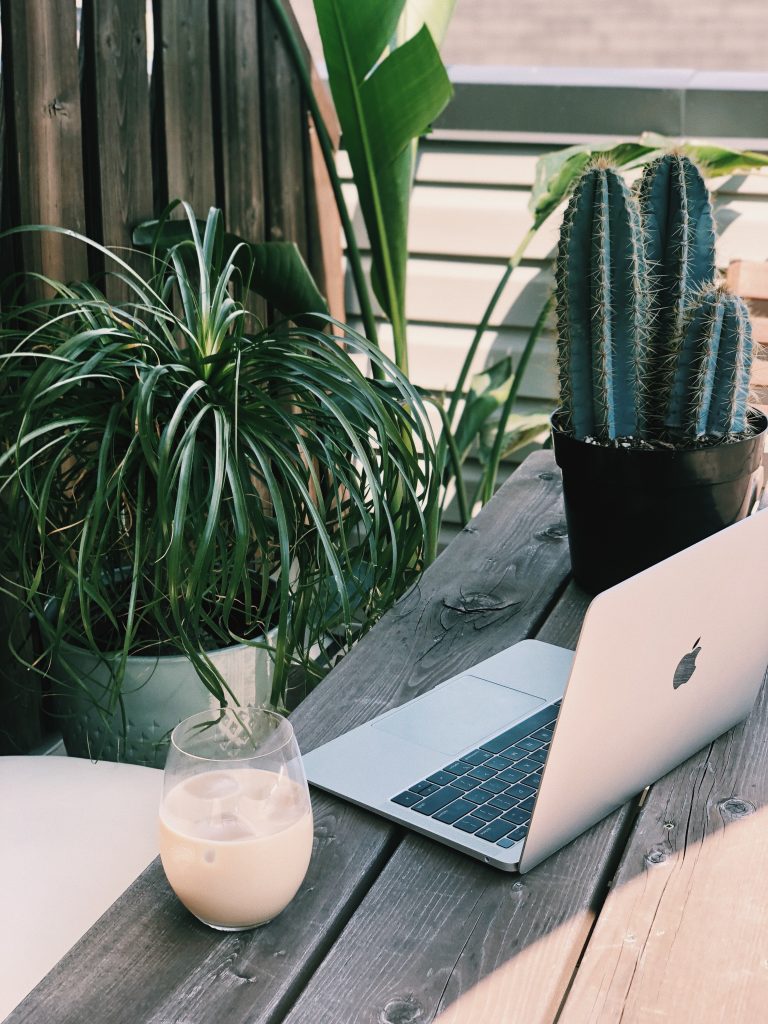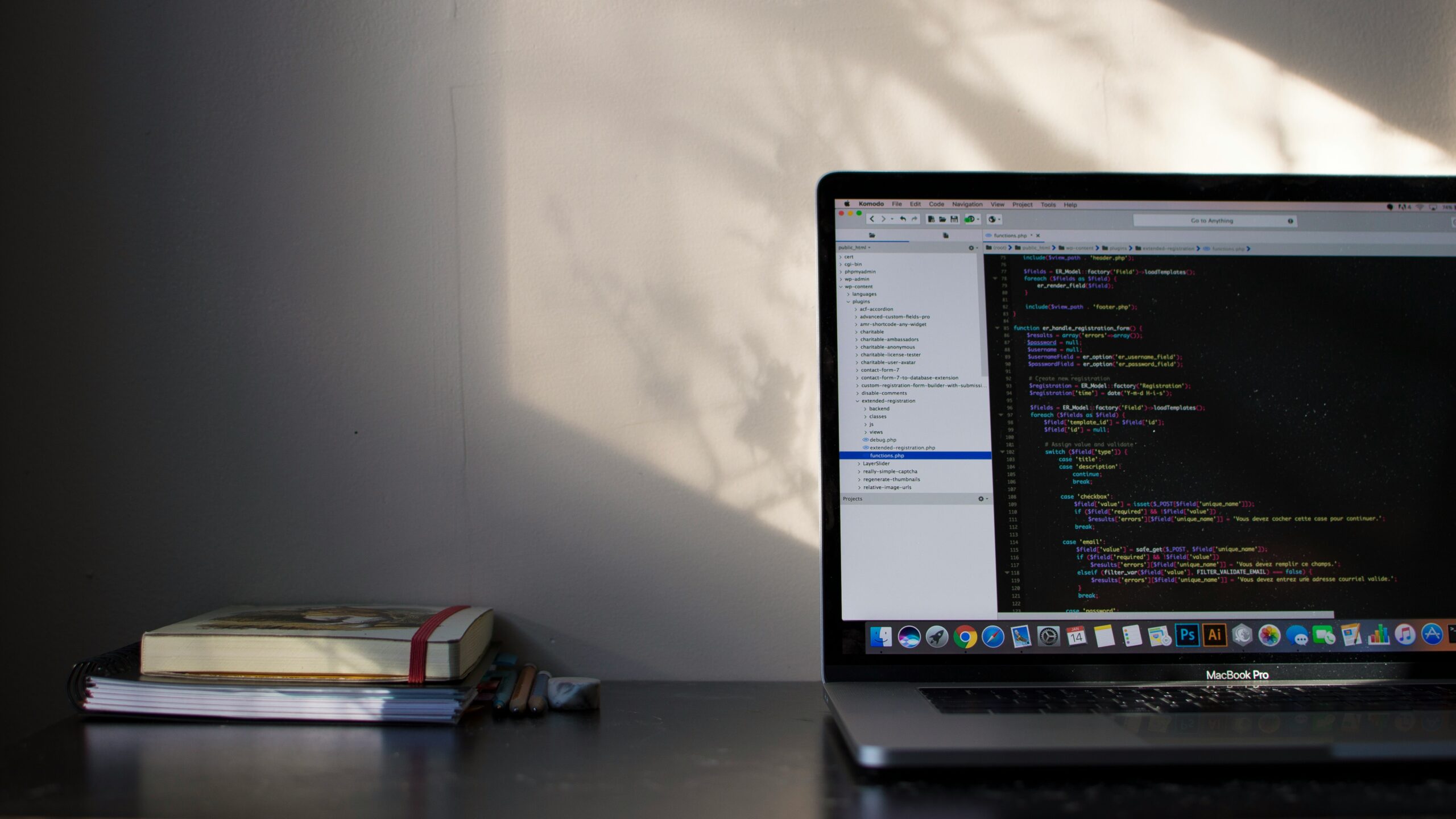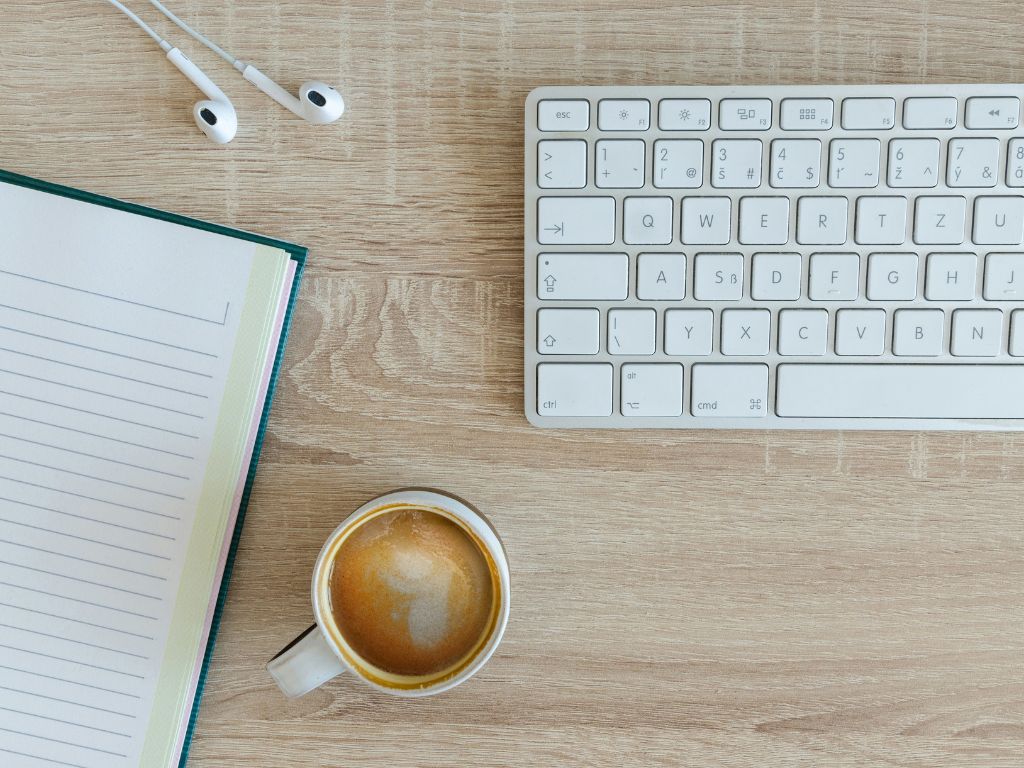I don’t think I need to explain what a roller coaster this past year has been for all of us. I’ve been struggling a lot with working from home and not being allowed to see my friends or visit my family in Sweden as often as I am used to.
Coping with my mental health has been a challenge, but over the last year, I’ve found some helpful tips I can share on how to stay positive, motivated, and healthy while working from home during lockdown and beyond.
What you can do during work hours
Keep up the banter and the group chats
From daily office banter to coffee break chats, talking with your colleagues is essential in forming good relationships with your colleagues.

When working from home, we miss out on the face-to-face interactions we are so used to. That’s why when we at Verve Search had to start working from home, we knew how important it was to implement these interactions virtually.
For example, my team has created a ‘non-official’ group chat on Slack to discuss topics that are not related to our work. These conversations with my team create a feeling of togetherness and support that extends further than work-related discussions.
It might not seem like it, but it really is essential to put aside 15 minutes of your day to talk about a funny tweet, a cool article, or just about your weekend plans.
Keep communication human
If you’re only communicating online, it’s really important to be aware of how you write to your colleagues. It’s easy to forget to be polite in texts when you’re busy or stressed, and for that reason, it’s crucial to be aware of your language when you communicate.
I always make sure to say ‘please’ when I ask for help and ‘thank you’ whenever I’ve received the help I needed. This might sound obvious to many, but I’ve become more aware of how language can change after a year of only using Slack and learned that simple politeness can be missed.
Also, when giving feedback on work, I always highlight the good parts I’ve noticed as well as giving suggestions. Keep in mind that the person on the other end can’t see or hear you, so using emojis for example can be a good suggestion of tone.
Turn off non-personal notifications
When it comes to Slack, you might find yourself involved in a lot of group chats for different projects and campaigns. Often you might not even be involved in the current process but will still receive notifications. My suggestion is to turn off notifications on general group chats and let Slack notify you if you have been mentioned in a message.
I also recommend turning off notifications on your phone and only allowing yourself to check your phone twice every hour. I put my phone away so I can’t reach it and when I am allowed to look at it again, I give myself a few minutes to scroll through my notifications. Turning off notifications on both Slack and on my phone has definitely increased my productivity as there are fewer distractions taking up my attention.
Utilise time management tools and resources
Our team has started using a time management tool called Trello. With it, we’re able to create a checklist for what needs to be done on the current day and throughout the week. Before we started using this tool, the only checklist of things I needed to do existed in my head. Trello helps me to be more organised and keep track of what needs to be done and when. You’re also given an overview of what your colleagues are working on and can therefore see who has time to assist you with your workload.
Raise your concerns if you need to
When the Verve team began to work from home, I instantly felt very anxious. I raised this concern with one of my team leads and said that I was worried about my mental health. She helped me set goals, gave me examples of what I could do in my spare time, and had virtual lunches with me.
Because I felt like I was working in a safe work environment, I could raise this issue with my team lead, but you can also try reaching out to one of your colleagues if you aren’t comfortable speaking to a manager. When it comes to work-related issues I always feel better talking to someone that can relate, so I decided to be open about my struggles with the people I work with. If even one person is aware of your worries, then that person may be able to support you.
Feel comfortable in your home and workspace

Changing up your environment can be difficult if you live in a small flat or if you’re sharing your home with others, but it’s important to be able to feel comfortable and creative while you’re working. That’s why my best tip (and perhaps the most enjoyable) is to redecorate.
I moved my kitchen table closer to the window, changed seats, and put flowers next to my computer. If you don’t feel like redecorating, you could try taking meetings in different areas of your home like in your bed or on the sofa.
Cleaning and organising your room or the area you work in can hugely help with productivity. Make sure to take some time to clean your kitchen area, wash up after your lunch, and minimise any distracting mess around you.
What you can do in your free time
Keep a regular routine
I lost my daily routines when we first began working from home, including walking as part of my commute and even something as simple as getting dressed in the morning. To bring back some sense of normality, I returned to doing some of the simple things that I did before lockdown.
I got back into the habit of getting changed in the morning (as it can be tempting to stay in PJs all day), eating breakfast, and drinking my morning coffee while reading the news. Your routine might also involve eating at regular times, scheduling calls with your friends and family, or pursuing a passion project.
If it’s hard for you to keep a routine, try creating a schedule of your upcoming week on Sunday nights, making sure to include what time you have your meals and how and when to exercise in the evenings. Studies have shown that continuing with your routines or implementing new ones can reduce stress, help you sleep better, and improve your overall health.
One study suggests that it takes anywhere between 18 and 254 days to form a new habit, so don’t put pressure on yourself to make something a routine instantly, just remember to carve out some time for yourself to do the things that you enjoy doing.
Exercise can really help
If you’re finding it hard to motivate yourself to go outside or exercise, set doable goals for yourself each week. Be kind to yourself – if for example you don’t have the energy to go out for a run, go out for a walk or run a shorter distance. Listening to your body and doing as much as you can is enough.
We’ve left a rather miserable winter, and springtime will mean it’s more pleasant to spend time outdoors. One of my goals this year was to go on a walk every day before work, but since I am not a morning person, this goal lasted less than a week. Instead of not going out at all during the day, I decided to start working earlier so I could take a longer lunch break and go for a walk then. Try and spend time in a park or any green space close to you as that time spent in nature can really improve your mood.
Start a journal

I started journaling a couple of months ago and it has really changed the way I perceive my life. Journaling can really help someone to understand what they have control over and what they don’t. Often we spend needless time worrying about things we can’t even change or affect, and journaling helps you shift focus onto what you can.
Every evening I write down my worries and fears. One common mistake is that people write down their thoughts without reflecting on them. Here’s an example of how to do it correctly based on the following worry:
I am worried I won’t be able to see my family for a couple of months.
This is a fear I imagine many people that are far away from their families have had throughout 2020 and 2021. But it doesn’t help you if you only write down the fear and thought – you need to recognise the reason why you feel this way. When we will be able to travel is out of our control. So ask yourself: “Why do I feel this way?”
Because I am scared that if anything would happen I am unable to see them.
Now we’re getting closer to the real reason behind your fear. Ask yourself: “What am I in full control of?”
Keeping close contact with both my family in Sweden and my family of friends in London to create a sense of safety and support.
This is something you are in control of. You can change your mindset and way of approaching things, but you can’t control the external world. When you have written this final thought down, you’ll understand what you are actually worried about, release the worry, and spend your energy focusing on what you are in control of.
After I have acknowledged my fear, I always write down three things I am grateful for. Practicing gratitude has been proven to increase wellbeing and happiness. It can sometimes feel that every day is the same, but when you really reflect on your day you will find small things that have made your day better. Here’s a snippet from my journal:
- I am grateful for the FaceTime call with my brother.
- I am grateful for the long walk during my lunch break.
- I am grateful for reaching my goal of reading 20 books within a year.
Try new ways of meditating
I never thought meditation worked for me because when I tried it, I would get annoyed by the fact that I couldn’t concentrate – but that’s precisely the reason I needed it. Research has shown that meditation can help you relax and sleep better, and it can also improve your emotional wellbeing.
Try meditation when you first wake up, during your lunch break, or before you go to sleep. I use an app called Headspace which is great for letting me choose how long I want to meditate. I started off meditating for three minutes and now, a month later, I can sit still and focussed for 15 minutes. I do this to be able to control my breathing, which helps when I’m feeling stressed or anxious.
Talk to someone
Despite this being a global pandemic, it can be easy to forget that everyone has been going through a tough time. Because of this, you’ll also need to be careful with how you reach out to people. Before reaching out to a friend, it’s very important to ask for permission before talking about what you might be struggling with.
Many of us have been carrying the burden of being away from our families and being isolated. Before reaching out to someone, it’s important to first ask them: “Do you have time for a chat?”. This gives room for the person in question to think and feel if they have the mental capacity to talk about your concerns.
The person receiving this text/call always has the right to say: “I am not feeling very well at the moment either, I don’t have the mental capacity right now. Is it ok if we schedule a zoom call tomorrow?”. It’s important not to take on too much, even if you want to be supportive. You can’t help anyone if you are not feeling well yourself.
For more information on where you can seek support in the UK, the NHS lists a range of mental health charities here.











